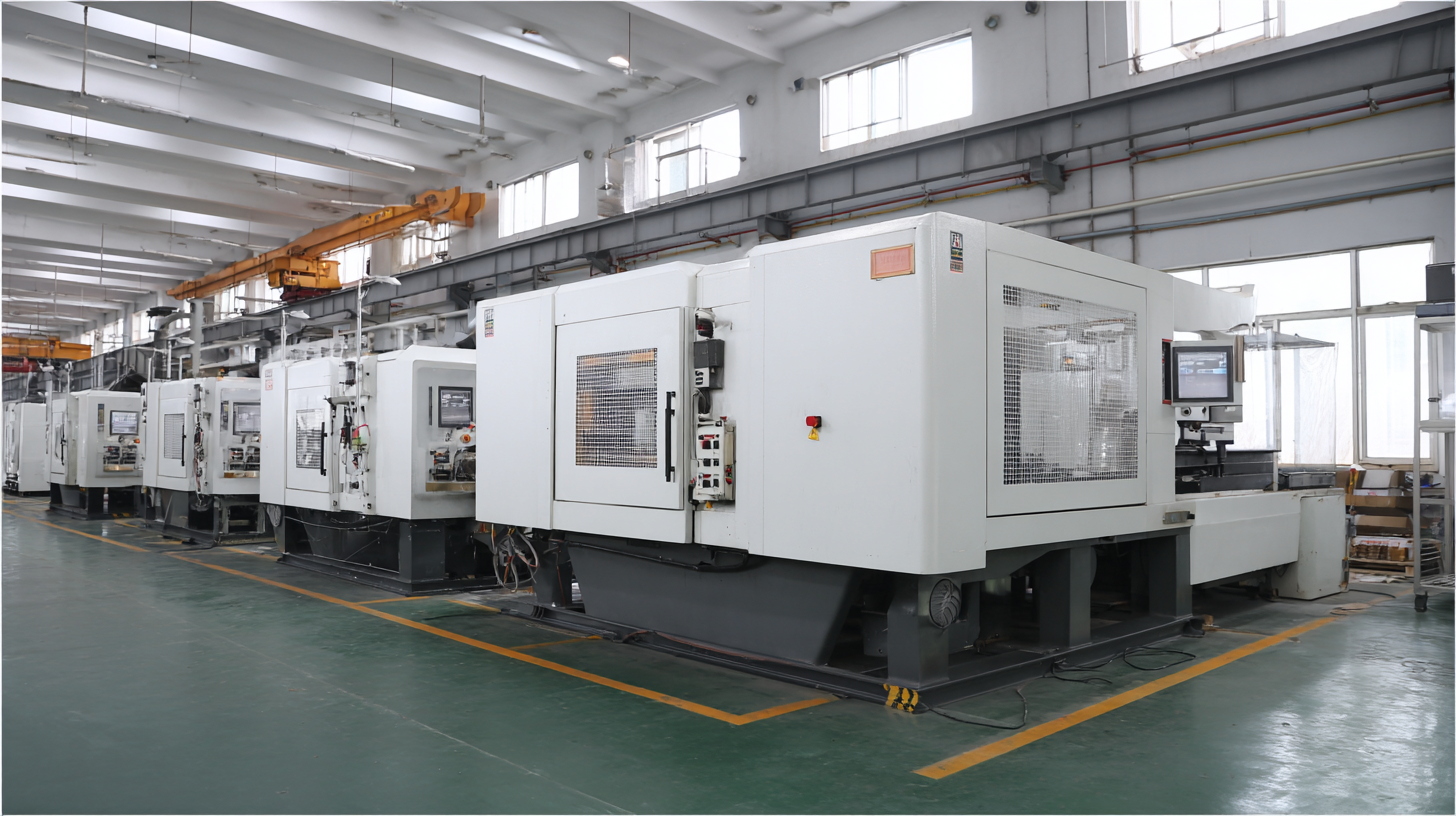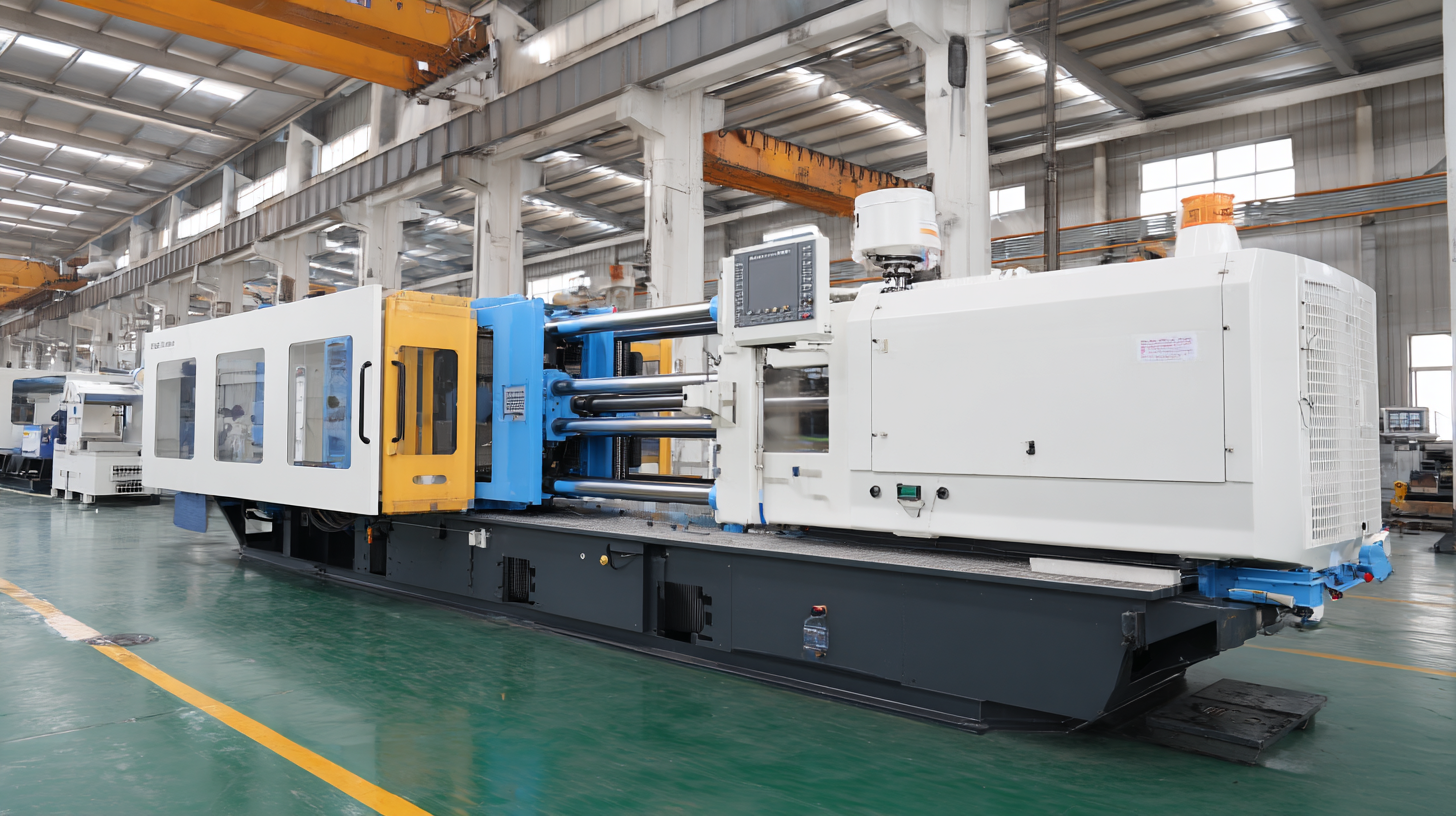
In today's highly competitive manufacturing landscape, the demand for precision and efficiency has led to a significant focus on specialized machinery, particularly the plastic die cutting machine. This versatile tool is essential across various industries, providing the ability to create intricate shapes and designs from plastic materials with exceptional accuracy. However, ensuring export certification for these machines is not just a regulatory hurdle; it's a commitment to quality that enhances marketability in the global arena. In this blog, we will explore the distinctive features and applications of different types of plastic die cutting machines, and provide actionable insights on how to navigate the certification process. Understanding these aspects is crucial for manufacturers aiming to deliver superior products while complying with international standards, thus securing their position in the competitive export market.

Export certification plays a crucial role in the global market for plastic die cutting machines. As manufacturers seek to expand their reach internationally, meeting the certification standards set by different countries becomes essential. These certifications not only ensure compliance with safety and quality regulations but also enhance the credibility of the machinery in the eyes of potential buyers. Since plastic die cutting machines are pivotal in various industries such as packaging, automotive, and textiles, having the right certifications can significantly influence purchasing decisions.
Moreover, obtaining export certification can open up new market opportunities. Many countries require proof of adherence to specific quality standards before allowing the import of industrial machinery. By investing in proper export certification, manufacturers can differentiate themselves from competitors, thus gaining a competitive edge in the global marketplace. This process often involves rigorous testing and assessments, demonstrating a commitment to quality and reliability, which ultimately reinforces customer trust and fosters long-term business relationships.
 When considering export certification for
plastic die cutting machines, understanding the key standards and regulations in the
die cutting industry is crucial. These standards ensure that machines not only
meet safety and quality expectations but also align with international market requirements.
Many countries mandate compliance with specific guidelines, such as the ISO 9001
for quality management systems, which ensures that manufacturers maintain consistent quality
in their production processes.
When considering export certification for
plastic die cutting machines, understanding the key standards and regulations in the
die cutting industry is crucial. These standards ensure that machines not only
meet safety and quality expectations but also align with international market requirements.
Many countries mandate compliance with specific guidelines, such as the ISO 9001
for quality management systems, which ensures that manufacturers maintain consistent quality
in their production processes.
Additionally, adherence to safety standards like CE marking in Europe
or FDA regulations in the United States is vital. These
certifications confirm that the machines are safe for operation and comply with health and
safety requirements. Exporters should also be aware of local regulations that govern
environmental impact, which could influence the design and functionality of die cutting
machines. By navigating these key standards effectively, manufacturers can enhance their
credibility in the global market and ensure successful export certification.
Ensuring compliance for your plastic die cutting machine is crucial, not just for meeting regulatory standards, but also for enhancing your product's credibility in the market. The first step involves understanding the specific certifications required in your target export markets. Each region may have its own set of rules regarding machinery safety, environmental impact, and operational efficiency. Researching these requirements thoroughly will set a solid foundation for compliance.
Once you have a clear understanding of the necessary certifications, the next step is to document all relevant operational processes and technical specifications of your plastic die cutting machine. This documentation will be vital when applying for certification from accredited bodies. Additionally, conducting regular training to keep your team informed about compliance procedures can further streamline the process. Integrating these steps diligently will not only facilitate smoother certification but also enhance the overall performance and reliability of your machinery in the long run.
| Step Number | Compliance Requirement | Description | Documents Needed |
|---|---|---|---|
| 1 | CE Marking | Ensure compliance with EU regulations regarding safety and health. | Declaration of Conformity, Technical File |
| 2 | ISO Certification | Adhere to international standards for quality management. | ISO Certificate, Quality Manual |
| 3 | RoHS Compliance | Limit hazardous substances in electrical and electronic equipment. | RoHS Declaration, Testing Reports |
| 4 | UL Listing | Ensure product safety and meet specific US standards. | UL Certification, Test Results |
| 5 | Product Testing | Conduct thorough testing of die cutting machine functionality. | Test Reports, Compliance Certificates |
When it comes to exporting plastic die cutting machines, choosing the right certification body is crucial for compliance with international standards. Certification bodies can provide essential validation for product quality, which is increasingly important as global markets demand transparency and credibility. According to recent studies, companies with ISO certification experience up to a 30% increase in market share due to enhanced trust from consumers and business partners alike. This demonstrates that a robust certification can significantly impact the perception of product reliability and sustainability.

In addition, navigating the complexities of export regulations requires a clear understanding of documentation and compliance. Certificates of Free Sale, for instance, play a vital role in ensuring that products can be freely marketed without restrictions. These certificates serve as proof that the products comply with local regulations and are safe for consumer use. Ensuring proper documentation not only expedites the import process but also shields companies from potential delays and fines. With meticulous attention to these certifications and guarantees, businesses can enhance their export readiness and competitiveness in the global market.
The future of export certification for plastic manufacturing is poised for significant transformation, driven by advancements in technology and rising regulatory standards. As manufacturers aim to ensure compliance with international markets, the integration of digital tools such as blockchain and AI is becoming increasingly prevalent.
These technologies not only enhance traceability throughout the supply chain but also streamline the certification processes, allowing manufacturers to demonstrate compliance with safety and quality standards more efficiently.
Furthermore, the shift towards sustainable practices is impacting the export certification landscape. Governments and organizations around the world are emphasizing eco-friendly production processes, prompting manufacturers to adapt their practices. This trend not only helps meet consumer demand for sustainable products but also influences the criteria for certification.
As these regulatory frameworks evolve, companies that stay ahead of the curve will be better positioned to compete in the global market, ensuring that their plastic die-cutting machines meet the necessary standards for export.

